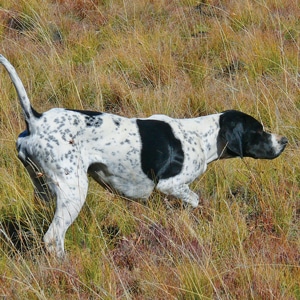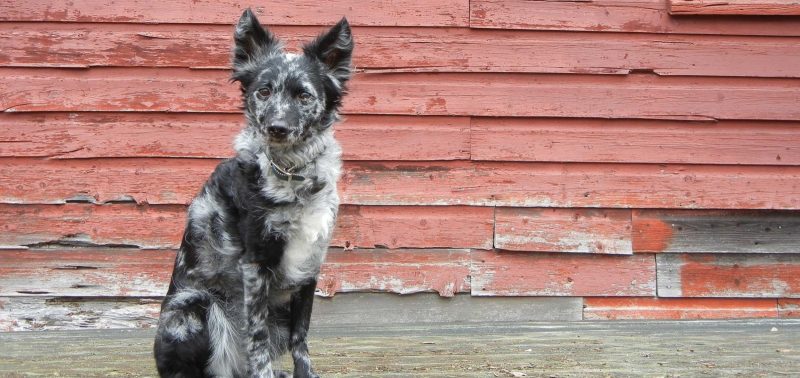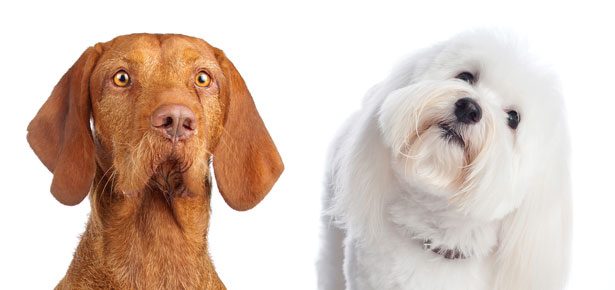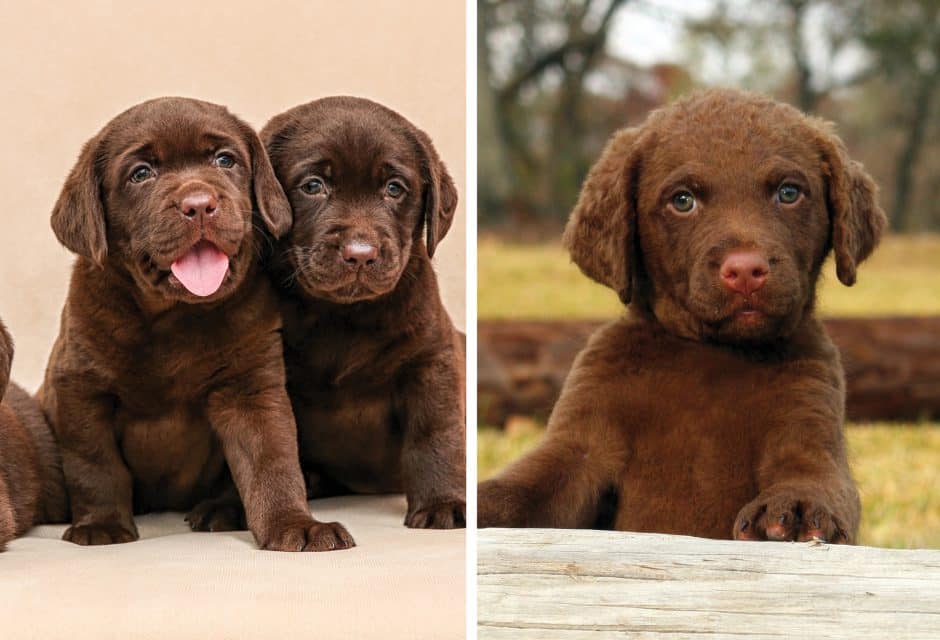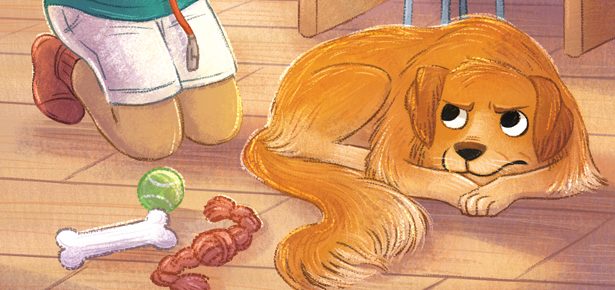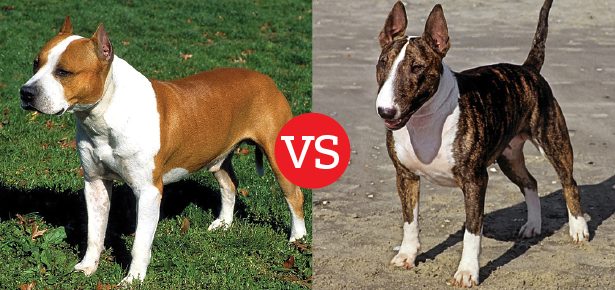
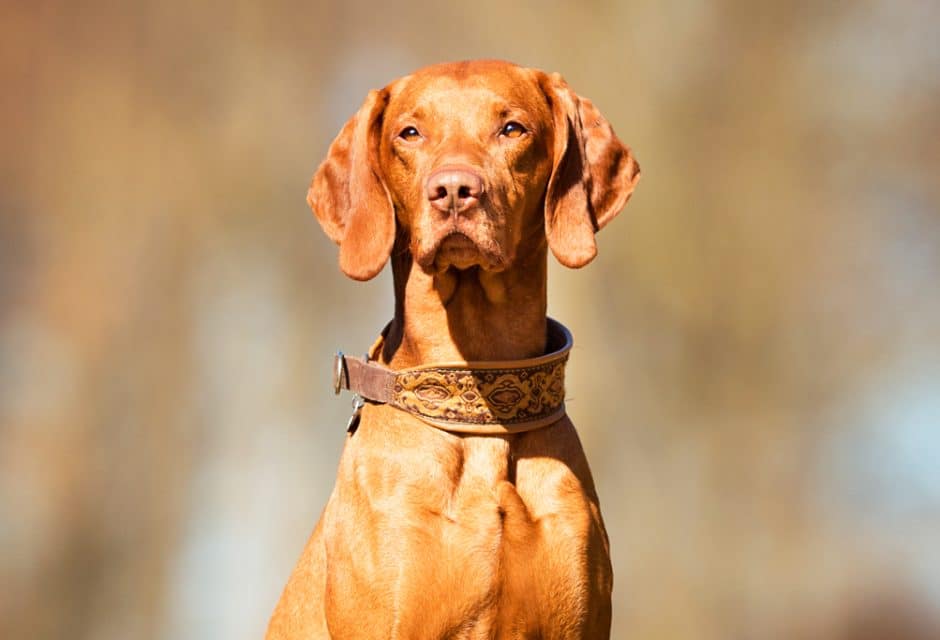
The Vizsla
Hungarian Treasure

Silently, the thief moved up to the small, glass-fronted vault. Inside, lay the Crown of Saint Stephen, a priceless medieval holy relic and beloved symbol of Hungary’s sovereignty. The thief’s plan was simple: shoot any guards, snatch the crown, and disappear before anyone could stop him.
His luck was about to run out.
Four dark amber eyes watched him approach the vault. Before he could touch it, a pair of sleek, red-gold dogs were on him, one gripping the thief’s gun hand, the other knocking him down. Moments later, human guards arrived to march him away to prison.
The vigilant watchdogs in this story reported to have taken place in the 1940’s were Vizslas, also considered a national treasure in Hungary. They were, most likely, rewarded as hardworking Vizslas have ever been: with a fond pat on the head and the Magyar equivalent of “Good dog!”
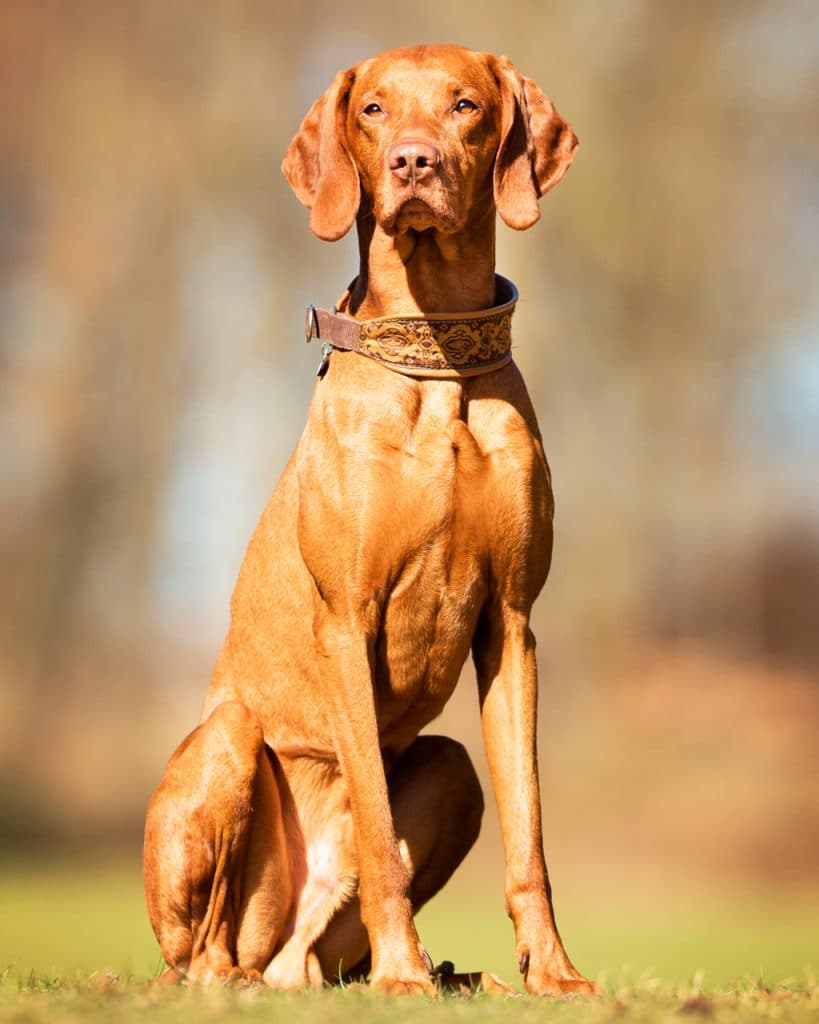
Bigandt_Photography/Bigstock
The Vizsla has been a prized hunting partner and family companion in eastern Europe for hundreds of years, with breeding closely controlled by the local nobility. Sometimes termed the “Gift of Kings,” few of the “Magyar pointers” were allowed to leave the region, except when presented to foreign royalty such as the queens of Italy and Spain.
This privileged status changed when Hungary was occupied by the Soviet Union in 1945. Some of the aristocrats who fled the country were able to bring their dogs with them, but the majority of Vizslas were killed, either by owners who could not take them or by the invaders. It is estimated that 80 to 90 percent of the breed was wiped out at this time and the Vizsla teetered on the edge of extinction.
From a handful of individuals that survived in its native land plus the few dogs that had been exported, the Hungarian breed was slowly rebuilt until, today, the Vizsla stands 33rd in popularity in the United States.
Most Popular Dogs in the US
According to the most recent AKC registration statistics
[1] French Bulldog
[2] Labrador Retriever
[3] Golden Retriever
[4] German Shepherd Dog
[5] Poodle
[6] Bulldog
[7] Rottweiler
[8] Beagle
[9] Dachshund
[10] German Shorthaired Pointer
[33] Vizsla
Unlike many utility dogs, Vizslas (or Vizslak in Hungarian) were never expected to be far from their masters; they were close-working hunters, finding, indicating, flushing, and retrieving game by day and sleeping next to their owners at night. The breed is classed as an “all-arounder” rather than as a specialist; the word vizsla means seek in Turkish and point in Hungarian.
This versatility was amply demonstrated in a Vizsla named Legacy’s DeChartay, who was the first quintuple champion and most-titled dog of any breed in American Kennel Club (AKC) history, holding titles in the show ring, obedience, field work, and agility. Her full designation would be: FC AFC OTCH MACH CH Legacy’s DeChartay 5xUDX MH VC MX MXJ HOF. During her lifetime, “Chartay” was awarded her own seat with VIP status from American Airlines, a unique honour.
Being an uber-achiever doesn’t make this high-energy pointer any less of a softie, however. Though hardy and tireless in the field, this is not a breed that can be treated harshly or made to sleep alone in an outside kennel. The Vizsla Club of America quotes an old Hungarian saying: “If you own a Vizsla, it lives on top of your head,” and warns: “If you bring a Vizsla into your home, you may never go to the bathroom alone again!” The AKC standard describes the breed as “lively, gentle-mannered, demonstrably affectionate and sensitive,” yet, at the same time, “fearless and with a well-developed protective instinct” (as the would-be crown thief discovered.)

TMArt_foto/Bigstock
The Vizsla is often described as noble in appearance, with its elegant, athletic build, clean, short hair, and far-seeing expression. The coat is wash-and-wear; Jack Sharkey, owner of Chartay once said, “You know what you do for these dogs? You open the shower door and pour on the lemon Joy. And you clip their toenails. That’s it.”
Vizslas with a longer, rougher coat are a completely distinct and more recent breed, the Wirehaired Vizsla, developed from crossing the smooth Vizsla with German Wirehaired Pointers in the 1930’s.
How to describe the proper colour for a Vizsla has been debated since breed standards were first compiled. Apparently, the original Hungarian term used meant yellow and the dogs are sometimes called the “yellow pointer,” yet yellow is a poor word for the rich colour of their coats. Variously described as “golden rust,” “amber,” “brownish amber,” “the golden colour of a bread crust,” “russet gold,” “copper,” or “dark sandy gold,” the colour should be uniform over the body, with nose, eyes, lips, and toenails blending with the shading of the coat, never black or grey. A small white spot on the chest is acceptable, but a large patch of white disqualifies the dog from the show ring.
A healthy, active breed, the Vizsla has few chronic problems and individuals may live up to 14 years. Breeders often screen their stock for hip dysplasia and von Willebrand’s disease (VWD), as well as having the dogs’ eyes tested and certified by the Canine Eye Registration Foundation (CERF).
Although long reserved as a possession beyond price for the rich and aristocratic class of his native land, the Vizsla— whether you see him as gold, copper, or amber—is now a precious treasure to be shared by all.
If you like the Viszla, check out:
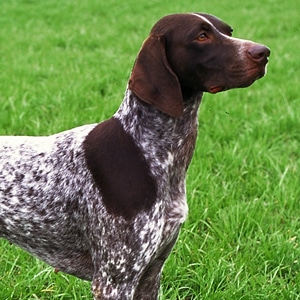
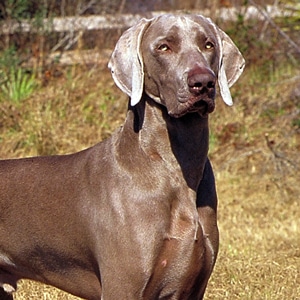
The German Shorthaired Pointer Weimaraner Pointer (English)
Photos Left & Middle: Mary Bloom © AKC; Photo Right BrandonHarvey/Bigstock
» Read Your Breed For more breed profiles, go to moderndogmagazine.com/breeds
This article originally appeared in the award-winning Modern Dog magazine. Subscribe today!
Join the newsletter and never miss out on dog content again!
"*" indicates required fields
By clicking the arrow, you agree to our web Terms of Use and Privacy & Cookie Policy. Easy unsubscribe links are provided in every email.
